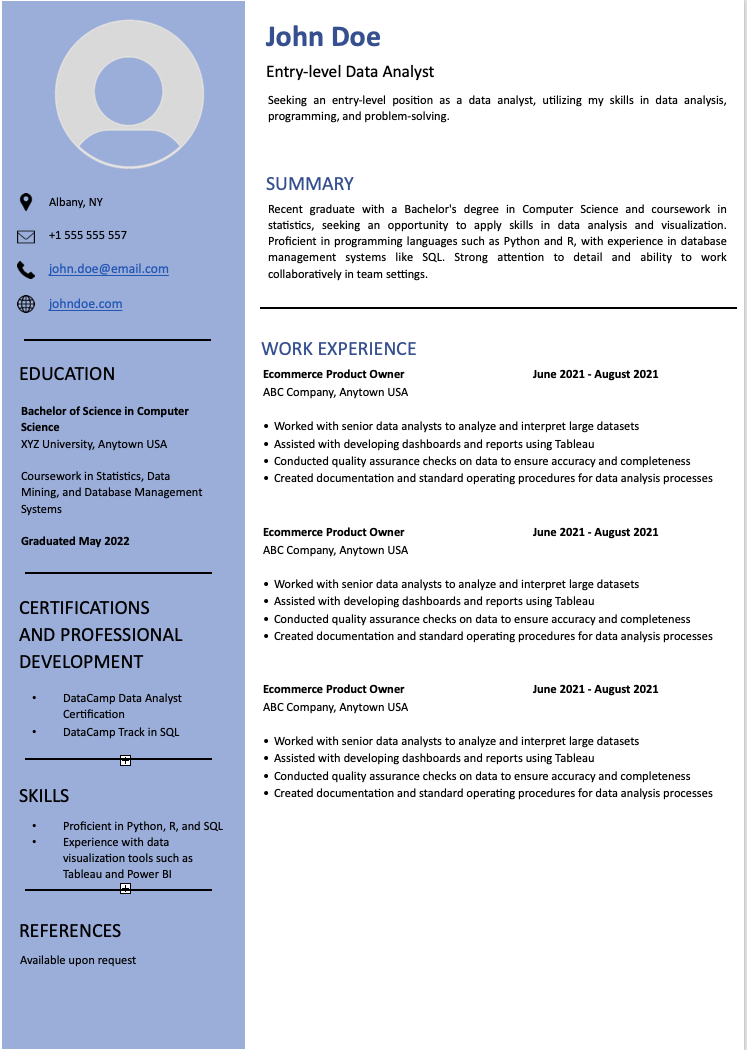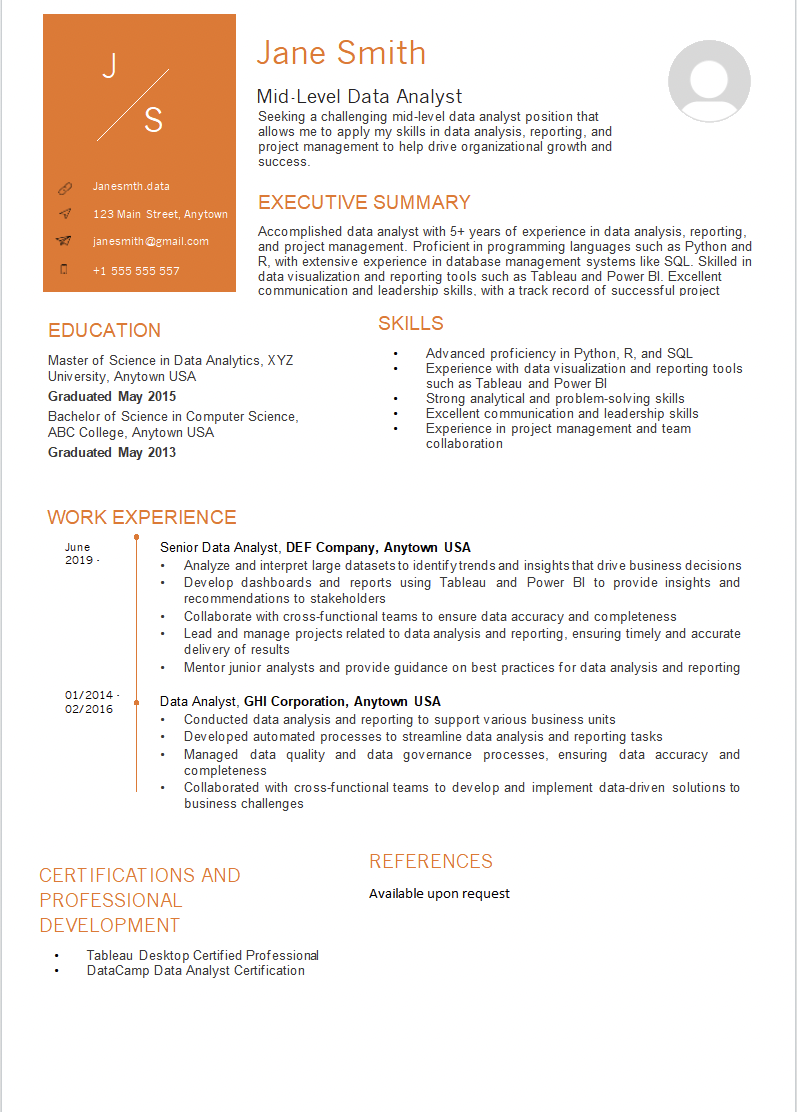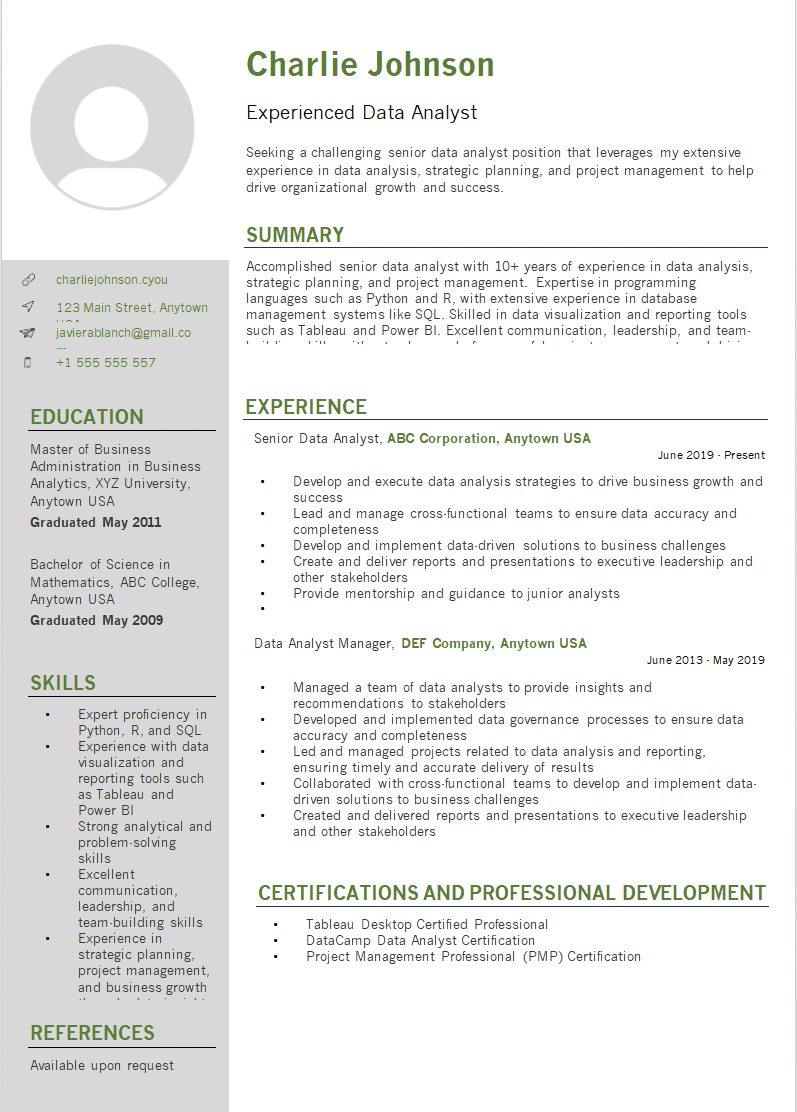How to Create a Data Analyst Resume
In this article, we'll discuss how to create a data analyst resume that will get you hired.
Apr 2023 · 7 min read
RelatedSee MoreSee More
blog
How to Write a Data Analyst Job Description
Discover what a data analyst job description looks like. Explore the different analyst types, a data analyst's responsibilities, and the qualifications and skills required to do the job.
Chloe Lubin
11 min
blog
Building a Stand-out Data Scientist Resume [Ultimate Guide For 2024]
Learn how to stand out with your resume and the dos and don'ts for an impressive resume. How to clear the ATS systems and get to interview. Learn how best to present your resume as a fresher, as an associate or a senior.
Elena Kosourova
20 min
blog
How to Become a Data Analyst in 2024: 5 Steps to Start Your Career
Learn how to become a data analyst and discover everything you need to know about launching your career, including the skills you need and how to learn them.
Elena Kosourova
20 min
blog
How to Write a Data Scientist Job Description in 2024
Discover how to create a compelling data scientist job description and learn about the key roles and responsibilities of this in-demand profession.
Matt Crabtree
12 min
blog
What Does a Data Analyst Do?
Discover what a data analyst is, what they do, and what you need to break into one of the most in-demand careers in data science.
Javier Canales Luna
11 min
blog
How to Negotiate Your Salary for a Data Job
In this article, we discuss the best practices for negotiating your salary when being offered a new data role.
Eugenia Anello
13 min


